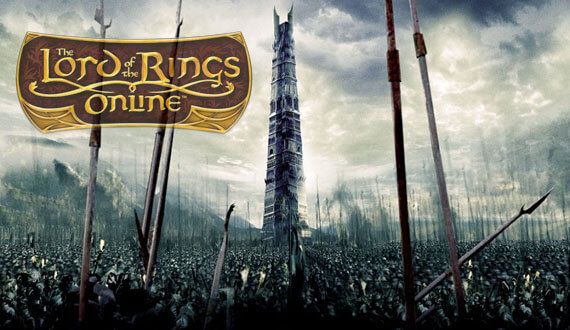The entire entertainment industry is in the midst of a restructuring, experimenting with new distribution models as consumers and markets diversify, but none are quite as complex as the video game marketplace. At present, trying to explain exactly how and and where games can be purchased, sold, or simply accessed means speaking in a language that is altogether foreign to the uninitiated.
Phrases like “1st party marketplaces”, “digital download clients”, “microtransactions” and more recently, “early access,” “pre-alphas”, “alphas” and “betas” have all become commonplace in today's gaming vocabulary. Even to casual gamers, the growing discussion, sales, concerns and outrage are becoming impossible to overlook. But for better or worse, it seems consumers will only grow more familiar with the lingo, and limitations.
For those who enjoy games exclusively on home consoles, the concept of a buyable ‘Early Access’ game is likely unheard of. Relating to a game that is still in a ‘pre-alpha,’ ‘alpha,’ or ‘beta’ stage of development - not yet completed - the product can still be ‘accessed’ by consumers.
This is nothing particularly new (MMOs have been offering open betas for years), but the key difference with early access is that players pay upfront for the privilege of playing - not simply offering a chance to test the systems. It was this method through which Minecraft was forged, existing for two years in an early state before being finally released in a finished form at the end of 2011.
So, considering the model bore one of the most profitable and important games of the last decade, it’s fair to say the method has had success, but it goes further than Minecraft. And thanks to one particular release, the model looks to only gain more momentum. Over the Steam winter sales this year, games like BioShock Infinite, Tomb Raider, Call of Duty: Ghosts and hundreds more were going for bargain prices, but were all eclipsed in popularity by DayZ, a $30 pre-alpha Early Access game.
To be fair, DayZ already had a huge following thanks to its cult status as wildly popular Arma 2 mod, only now venturing out as its own standalone game - and going on to sell 800,000 copies through December. Other Early Access games like Rust and Starbound also found success throughout the holiday season, proving that the shooter is not an anomaly.
For console gamers used to buying their games from retailers, it may be difficult to grasp the thinking of PC gamers paying $30 for a game they know is rough, unfinished, and in some cases, riddled with technical bugs and glitches. The key to explaining the appeal is in the interplay between gamer and developer; throughout the Early Access, developers learn from the players, granting them a voice not often afforded.
Does a majority of the player base feel that a certain weapon is too powerful? Is demand for customizable characters higher or lower than expected? How can performance be optimized in areas where players congregate? All of this is valuable information that shapes the final game, and is usually unavailable until deeper into development.
The other real benefit of this distribution model is that it generates conversation and interest all the way up until a game is officially 'released.' Minecraft built its following slowly over its two-year Early Access; if the game had released without that community, it's arguable that it would be less popular than it is now. Having a long beta period keeps a game in the public spotlight, constantly growing, hopefully improving and therefore picking up adopters all the way through production.
To illustrate that with a hypothetical, imagine the DayZ standalone release followed the typical development model, and the game wasn’t released until it was ready. The beta doesn’t go live until at least the end of the year, so the earliest the full game is likely to turn up is a decent way into 2015. Would the community still be begging for a DayZ standalone? It might not have the community supported by forums and clans that it's getting now, and at present, there looks to be a solid year of DayZ discussion and updates to look forward to.
But - and it's a big but - there is reason for caution with the model as well. While there is no shortage of popular Early Access games at the moment, the potential for a misstep is ever-present. Much in the way Kickstarter once seemed like a dream come true, there is no question that some of the novelty offered in helping make a game a reality has been lost. While there is still great potential in the service and great products to back, there is the possibility of true disillusionment should one of the much-hyped projects disappoint.
Similarly, the microtransaction at one time offered an attractive alternative to up-front cost, and is largely responsible for killing most subscriptions for MMOs, allowing players to invest exactly as much (or as little) as they wished to. Games like Lord of the Rings Online and Star Wars: The Old Republic seem to have survived because of the model, and in the best circumstances, leaves the publisher and the player (devoted or casual) in a satisfactory stance. The miraculous resurgence of LoTRO alone led many to argue that microtransactions could be a sign of the future of games-as-services.
That was, until the AAA and mobile phone market took the concept and incorporated it into core game design and progression, forming a new model that turned off as many as it targeted. The model - typically offering accelerated progression for a price - had been designed to monetize free-to-play experiences, but when Dead Space 3, a full-priced $60 game included microtransactions gamers rightfully worried about the potential for abuse. The thriving mobile market had once seemed like a growing challenger to the mainstream games market, but in the light of microtransactions' success, is now nearly dependent on the model.
Without coughing up a dollar here or there, great mobile experiences like Clumsy Ninja, Candy Crush Saga and Plants Vs Zombies 2 can force players to slog through hours of gameplay (grinding) in order to progress, the game tempting players to buy past the monotony with in-game currency and lives at a constant pace. And that's aside from the egregious examples of microtransaction abuse like the child friendly Angry Birds: Go! offering a car for $99.99.
There are already warning signs that Early Access has started to become twisted by major publishers in the same way. Destiny will be offering a beta this summer, but only for players who pre-order the game. The beta will undoubtedly be useful, as Destiny is dependent on MMO-like multiplayer system and will benefit greatly from a test run. The potential problem is Activision trying to persuade users to put their money down for the full game just to get buggy, incomplete access to a AAA title early. That's not new, but its growing prevalence could set a dangerous precedent, especially as the game has shot up in pre-orders since the beta was announced.
Major publishers have also shown that when it comes to selling completely... complete games, they can't always be trusted. Season passes for games like Call of Duty, BioShock: Infinite and Assassin's Creed acknowledge that even when a game hits retailers, there is content being developed for the title that will not be accessible unless an additional fee is paid.
DLC is planned well before a game is released (either to lengthen a product's profitability, or simply keep players from trading in their copies), not to mention console and outlet-exclusive DLC and character or weapon skins that grant certain buyers content that others will never see. Is it so hard to imagine a world where EA could break tradition with their top-tier titles, and charge full price for a Battlefield ‘Early Access,’ only to release an unfinished game while still happily accepting consumer’s money? Oh wait, that already happened with Battlefield 4 - they just didn't have an Early Access label (read:excuse) to hide behind.
Early Access is, at its heart, a worthwhile program doing great things for certain studios, and has every chance of turning out well in the end. But above all, it's largely a trust-based system that works on transparency and communication that has excelled in the past and is doing so now. But the gaming industry is undeniably one in which massive publishers can grasp thoughtlessly at trends, meaning those pillars of trust and communication could quickly disappear as ‘Early Access’ becomes more ‘mainstream’.
Unfortunately, gamers live in a world where tools that are meant to offer them choice and increased flexibility can be twisted to bleed money from their very pockets. If certain publishers and indie studios end up misusing the payment method, we can only hope that the loudest critics remember to blame the workmen, and not the tool, so the makers of quality titles truly in need of some extra help can continue to thrive.




